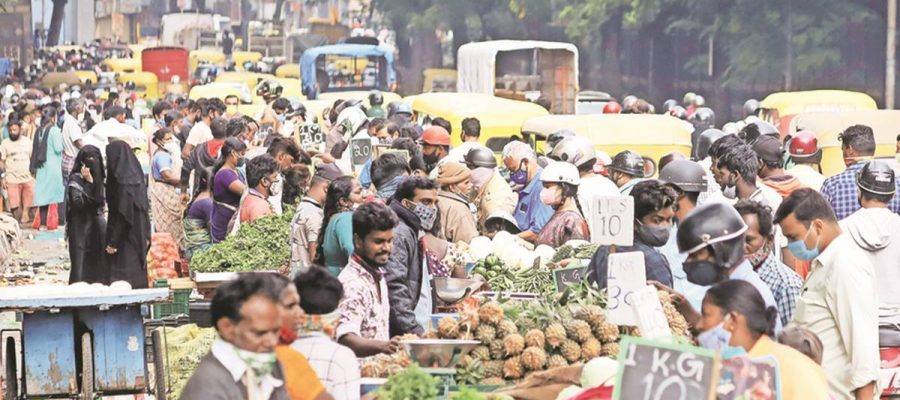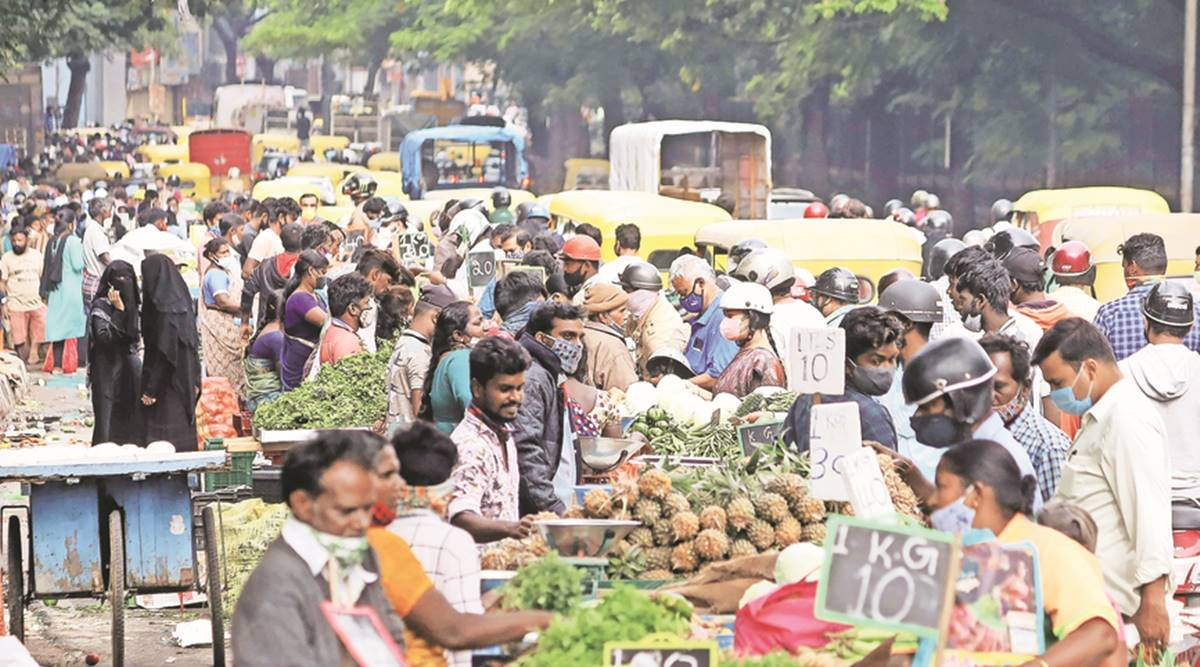This is in sharp contrast to the first wave of the pandemic, when a majority of deaths — nearly 60 per cent — were reported to have occurred within one to three days of hospitalisation.
A significant proportion of deaths that occurred during the second wave of the Covid-19 pandemic in Bengaluru occurred around 10 days after hospitalisation, data has revealed.
As many as 734 deaths of the 1,855 Covid-related deaths or nearly 40 per cent of the fatalities reported between May 28 and June 3 occurred 10 or more days after hospitalisation or at the homes of patients, according to official data for Covid-19 cases and deaths from the Karnataka Health Department.
This is in sharp contrast to the first wave of the pandemic, when a majority of deaths — nearly 60 per cent — were reported to have occurred within one to three days of hospitalisation.
The data seems to reflect another feature of the second wave in Karnataka — many patients developed complications due to the virus and succumbed to them 10 days after their treatment, when they were supposed to be on the mend.
“Many deaths are due to post-Covid complications. Persons who are infected and in the recovery phase are dying,” said Dr Shiva Kumar from the emergency unit at Victoria Hospital, a Covid-19 tertiary care facility attached to Bangalore Medical College.
“If a proper retrospective study of the death cases is done then you will find that many had Covid, they were treated, they went home and again they had some problems and were brought back to the hospital and admitted to the ICU,” he said.
According to Dr Shiva Kumar, nearly 10 per cent of patients discharged have shown some sort of post-Covid complication. “Around 5 per cent come back to the ICU and around 1-2 per cent die,” he said.
The same pattern has also been seen in private facilities. “In many cases, the death occurred in a patient who received treatment for up to 10 days or more and was considered to be ready for discharge due to the absence of fever for over 24 hours,” said an associate professor at a private medical college which is treating Covid-19 patients.
At the same time, the number of daily deaths in Bengaluru remains high despite a drop in Covid cases – on June 3, the city reported only 3,533 fresh virus cases but 347 deaths.
“A large number of deaths continue to be reported because of a lag in reporting. Also, during this wave, the duration of hospitalization has been more – patients have come late to the hospital and they are also recovering late,” said Dr M K Sudarshan, public health expert and chairman of the technical advisory committee of the Karnataka government on Covid-19.
An official of the state technical advisory committee admitted as much – many of the 1,855 deaths reported for the period May 28 to June 3 had occurred prior to May 15.
According to Dr S Sachidanand, the vice-chancellor of the Rajiv Gandhi University of Health Sciences, the continued reporting of a high number of deaths in Bengaluru is on account of the deaths following a different timeline in the second wave.
“We cannot compare the total cases and deaths together. They are occurring in different timelines. The deaths being reported now are cases where the infections happened 15-21 days earlier. At that point, the number of positive cases was more. The death rate is proportionate to the case rate that was prevailing 14-21 days earlier,” he said.
Incidentally, the 13 electric crematoriums and three open in the city, which were each handling a caseload of 50-85 deaths a day at the peak of the second wave in late April and early May, are now handling bodies in the single digit range — a clear disconnect between the official daily death data and actual deaths on the ground.
Source: Read Full Article


